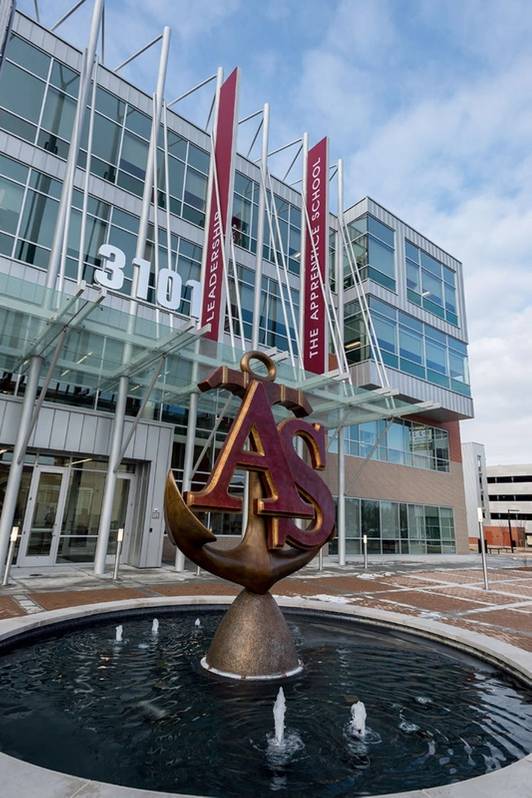Inside The Apprentice School at Newport News Shipbuilding with Dr. Latitia McCane
The Apprentice School at Newport News Shipbuilding trains shipbuilders and leaders to build some of the highest value maritime assets on the planet: U.S. Navy ships. Dr. Latitia McCane, Director of Education, The Apprentice School at Newport News Shipbuilding discusses the challenges and rewards of the job.
While most shipbuilders lament the dearth of interest from the next generation to take up a career in shipbuilding, Dr. Latitia McCane, Director of Education, The Apprentice School at Newport News Shipbuilding has the opposite problem, sorting through nearly 4,000 applicants to fill only 200 spots annually.
A chemist by training, Dr. McCane’s entire career has been in and around the ‘earn and learn’ model, as she benefited from financial assistance from the likes of the National Science Foundation and the National Institute of Health for tuition, books and fees for her STEM path of study. “So when I got the phone about coming here and being the Director of the Apprentice school, it took me back to my roots of earn and learn,” said Dr. McCane.


Shipbuilders and Leaders
The Apprentice School at Newport News Shipbuilding is much more than learning a shipbuilding trade, as Dr. McCane notes it is the “leadership factory” for the storied shipbuilder, looking for students that not only have the requisite technical aptitude and complex problem-solving skills, but also ones that have a strong background and aptitude in math and science. “Our students have to take a lot of mathematics, physics and ship construction,” mixed with an athletic program that is aimed at building leadership, another pillar of the Apprentice School.
Students earn $18/hour during the apprenticeship, elevating to about $64,000/year once they graduate.
Today the school has about 800 students, a student body that is male dominated with about 83% being male versus 17% female. “Our goal this year is to grow the number of females that we have within our school,” said Dr. McCane
Finding a diverse and qualified student body means partnering with local communities and schools – K-12. “We have about 40 plus students who we’ve matriculated through our pre-apprenticeship program, where we’re exposing them for one year, teaching them about the maritime trades, and also, teaching them about what it feels like to be an apprentice,” said Dr. McCane, and exposure and mentoring regimen now in its second year. Ultimately, the success of The Apprentice School and the shipbuilder too is increasingly pegged to these outreach programs, partnering with communities to expose them to the possibilities of a career in shipbuilding.
“We have 45 high school students that we’re training virtually right now, exposing them to the trades,” said Dr. McCane, and the process of getting families involved in the educational process is deeply personal to her. “I’m a product of a manufacturing because my father worked in chemical manufacturing and he took me to his chemical company. I told myself ‘when I grow up, I’m going to work at my dad’s chemical company.’ And I did that, as they gave me internships while I was in high school. So being able to feel it, touch it (is an important part of the process. When I got my first chemist position and I had to put that hard hat on, it was my comfort zone because I grew up in my dad’s world.”
The Apprentice School, like the rest of the world, has been impacted by COVID, which has resulted in investment in educational technologies to better reach students – both prospective and actual – at a distance. “One of the things that we’ve been fortunate this year is how do you do technical training in this pandemic? And so we’ve been fortunate enough to be able to bring in some augmented and virtual reality training,” said Dr. McCane. “We’ve been fortunate to be able to get federal and state funding, to help us with the technology that we need to reach them. Like I said, we’re engaging with 45 high school students today. We have three training programs that we’re doing with them virtually. We wouldn’t be able to do that if we didn’t have our augmented and virtual reality equipment that we purchased over the past year because of the investment that our federal government and state government is putting into our communities. We’re investing in people, young people with bright minds, and I think that that’s the best feeling in the world.”

